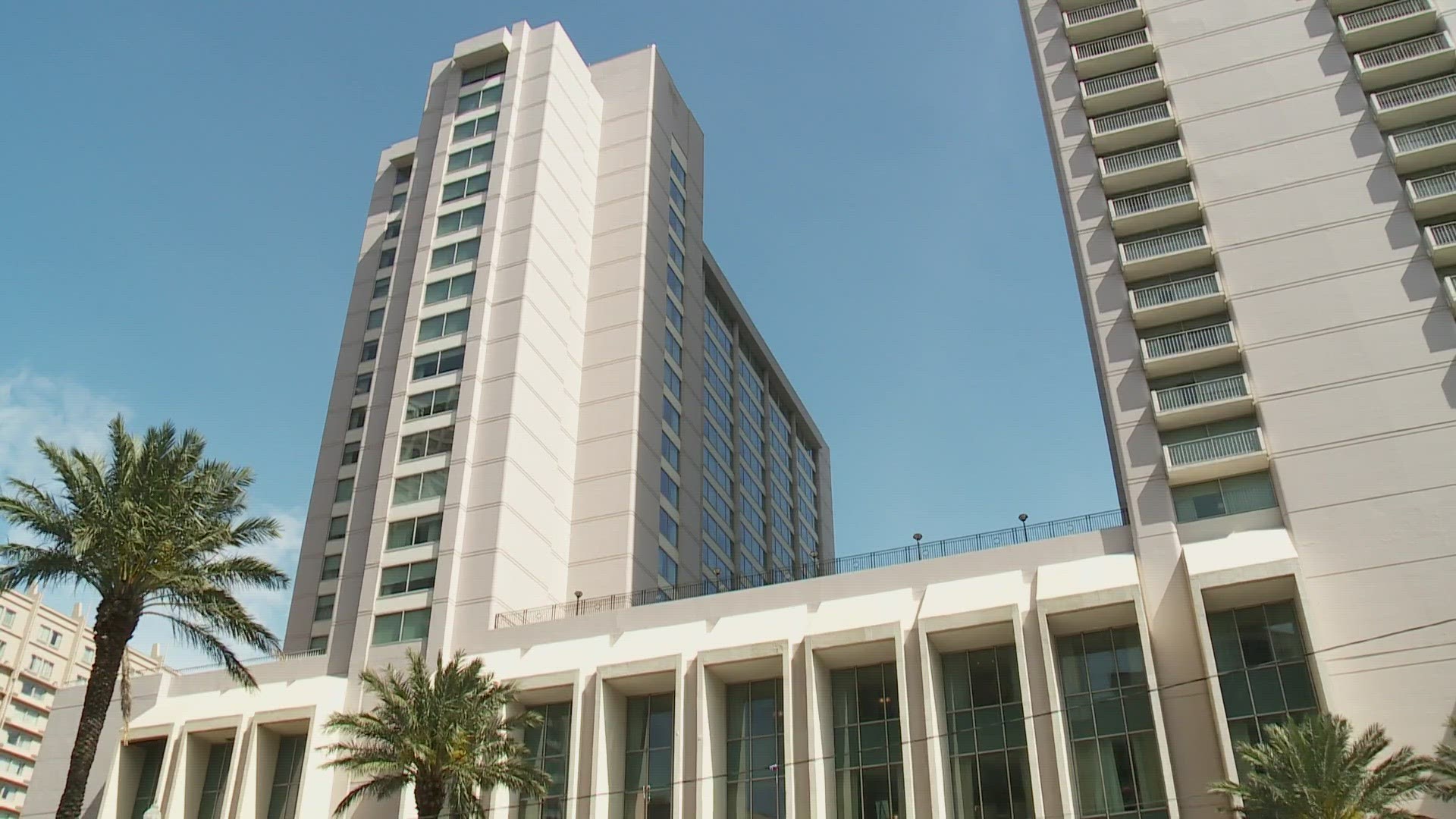NEW ORLEANS — New Orleans police officers were all hands on deck to return this year’s Mardi Gras parades to their traditional routes. And Carnival’s return to its full glory could not have happened without a big assist from the Orleans Parish Sheriff’s Office, who not only provided up to 140 deputies for security at parades, but helped recruit more than 200 officers from outside police agencies.
But that help from the sheriff’s office included some unexpected costs to taxpayers.
Records obtained by WWL-TV show that more than a dozen high-ranking sheriff’s commanders received a perk that nobody from the NOPD received: lodging at high-end local hotels, all paid for with public money.
Most of the lodging used by deputy sheriffs and other commanders was at the Omni Royal Orleans in the French Quarter. And the records show that many of the top brass stayed for eight days and nights at a cost ranging from $160 to $270 a room per night. The total cost at the Royal Orleans, in the heart of the tourist section of the Quarter on St. Louis Street, was $18,174, according to the hotel bills provided by the Sheriff’s Office.
The records also show the sheriff paid for rooms for top deputies during the first weekend of Carnival. The bills show $373 spent at the Sheraton on Canal for three nights and $661 for four nights at the Marriott that weekend. The Marriott bills also show payments of $50 a day for parking for two days.
Heading up the Sheriff’s “Mardi Gras Command Staff,” according to the documents, were Deputy Sheriff Kristen Morales and Assistant Sheriff Laura Veazey, neither of whom are commissioned law enforcement officers. The records do not indicate that Sheriff Susan Hutson stayed in the hotel rooms.
Councilman Joe Giarrusso, chairman of the budget committee, said that not only do the charges seem excessive, he questions if the public should be paying for any lodging for any sheriff's office employee to work Carnival.
“I don't understand, particularly if it's on city dollars,” Giarrusso said. “A lot of public servants are crunched and they spend the night in their own bed…This is part of the reason we scrutinize the budget so heavily.”
Past sheriffs, including Hutson’s immediate predecessor Marlin Gusman, have provided deputies to help with Carnival security, but they were never put up in local hotels.
WWL-TV reached out to the Sheriff’s Office for comment, and the initial explanation from a spokesperson was that the lodging was covered in an extensive Cooperative Endeavor Agreement between the city and Sheriff.
The CEA specifically spells out that the city will cover only lodging for “outside agencies” who sent officers from more than 35 miles away. Of the 17 outside agencies who sent at least one officer, about 11 of those appear to have qualified for the lodging. But other metro area departments, such as the Jefferson Parish Sheriff’s Office, University of Holy Cross Police and various local constables offices, don’t appear to have qualified.
But in a statement from OPSO late Tuesday, the office did not mention the CEA. The statement reads, in part:
“During the course of our planning, OPSO determined it was imperative to have our team located near the parade routes to ensure safety and efficiency.”
The statement goes on to cite the complicated logistics and long hours worked by the commanders:
“Managing this also meant our command center had to be open and ready before the first deputy arrived prior to the first parade and after the last person left, at least four hours after the parades completed. Command and supervisory staff were working nights as late as 1-2 a.m. and had to be up early to return to their duties as early as 4:00 am on Mardi Gras Day. This was part of strategic decisions made to best serve the needs of the city and successfully fulfill the terms of the cooperative endeavor agreements.”
Rafael Goyeneche, president of the Metropolitan Crime Commission, a non-profit watchdog group, said that in addition to falling outside the agreement with the city, the use of public money for deputies who already work in New Orleans could run into ethical or legal problems.
“I believe that that's an improper use of public funds,” Goyeneche said. “That would be something that I think the Inspector General for the City of New Orleans needs to review.”
In the eyes of Goyeneche, Orleans Parish deputies – especially salaried top commanders – who report to Carnival security duty should be treated just as if they are reporting to work at the jail. The jail is the sheriff’s primary responsibility.
“If they have to go to work to work in the jail, the sheriff's office doesn't pay for their lodging,” he said. “If they have to go to work to work on a parade route, my position is that the sheriff's office does not owe the deputy lodging.”
Giarrusso says he is determined to get a full accounting of the hotel expenses.
“The sheriff is going to have to account both in the media and to us at our quarterly meeting in March,” Giarrusso said.

